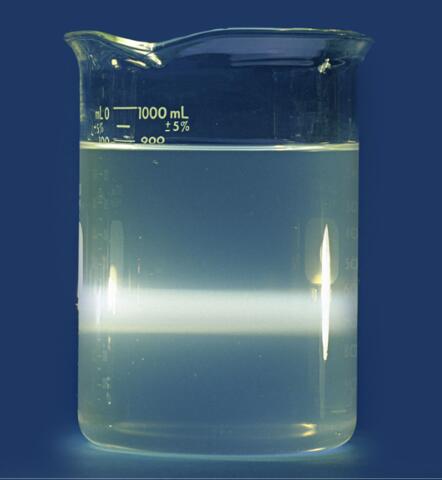Organic colloidal silica is a versatile and valuable material used in various industrial, cosmetic, and scientific applications. Its unique properties make it essential for many processes, but maintaining its quality and effectiveness requires proper handling, storage, and care. In this article, we will outline the key steps to ensure the optimal maintenance of organic colloidal silica.

Organic colloidal silica is a suspension of silica particles in an organic solvent or water. It is widely used due to its ability to enhance adhesion, improve mechanical strength, and act as a thickening or binding agent. However, its performance can degrade if not stored or handled correctly. Understanding its characteristics is crucial for effective maintenance.
To maintain the quality of organic colloidal silica, it is vital to store it under the right conditions. The following guidelines should be observed:
Temperature Control: Store the product in a cool, dry place, away from direct sunlight and extreme temperatures. High heat can destabilise the suspension, while freezing temperatures may cause separation or coagulation of the silica particles.
Sealed Containers: Always keep the container tightly sealed when not in use. This prevents contamination and evaporation of the solvent, which can alter the concentration and properties of the silica suspension.
Avoid Contaminants: Ensure that the storage area is free from dust, chemicals, or other contaminants that could compromise the purity of the colloidal silica.
Conducting regular inspections of your organic colloidal silica is essential to identify any changes in its quality. Pay attention to the following signs:
Consistency: Check for changes in viscosity or the appearance of clumps, which may indicate destabilisation of the suspension.
Colour: A noticeable change in colour could signify contamination or degradation.
Odour: Any unusual odour might indicate chemical changes or the presence of impurities.
If any of these issues are observed, take corrective measures or consult with the supplier for advice.
Proper handling is key to maintaining the integrity of organic colloidal silica. Follow these best practices:
Use Clean Tools: Always use clean and dry tools to handle the product. Contaminants introduced during handling can affect its performance.
Mix Thoroughly: Before using the product, gently stir or shake the container to ensure a uniform suspension. Avoid vigorous shaking, as this can introduce air bubbles or foam.
Measure Accurately: Use precise measuring tools to avoid altering the intended concentration of the silica suspension.
If the organic colloidal silica has reached its expiration date or has become contaminated, dispose of it properly to prevent environmental harm. Follow these steps:
Check Regulations: Adhere to local waste disposal regulations for chemicals.
Label Clearly: Clearly label the container as expired or contaminated before disposal.
Consult Professionals: Seek advice from waste management experts or your supplier for safe disposal methods.
While organic colloidal silica typically has a defined shelf life, certain measures can help extend its usability:
Store in Optimal Conditions: As mentioned earlier, maintaining appropriate storage conditions is crucial.
Avoid Frequent Transfers: Minimise the transfer of the product between containers to reduce the risk of contamination.
Monitor Usage: Keep track of usage rates and reorder quantities to ensure fresh supplies are always on hand.
A reliable supplier is an invaluable resource for maintaining the quality of your organic colloidal silica. Regular communication ensures you stay informed about best practices, product updates, and troubleshooting advice. Suppliers can also provide technical data sheets and safety information to guide proper handling and maintenance.
Maintaining organic colloidal silica requires careful attention to storage, handling, and regular inspection. By following the steps outlined in this article, you can ensure that your product retains its quality and effectiveness for its intended applications. Proper disposal of expired or contaminated material and open communication with your supplier further enhance the overall management process.
If you have any questions or require assistance, please contact us. As a trusted supplier, we are dedicated to helping you maintain and utilise organic colloidal silica effectively.
